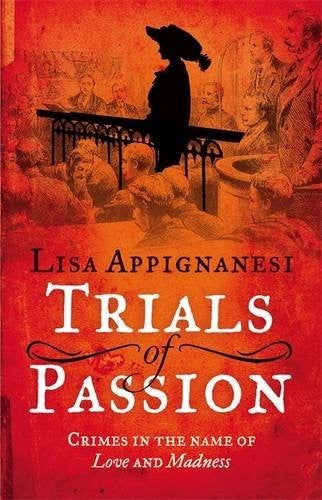Paperbacks: From Neverhome to Daydreams of Angels, book reviews

Your support helps us to tell the story
From reproductive rights to climate change to Big Tech, The Independent is on the ground when the story is developing. Whether it's investigating the financials of Elon Musk's pro-Trump PAC or producing our latest documentary, 'The A Word', which shines a light on the American women fighting for reproductive rights, we know how important it is to parse out the facts from the messaging.
At such a critical moment in US history, we need reporters on the ground. Your donation allows us to keep sending journalists to speak to both sides of the story.
The Independent is trusted by Americans across the entire political spectrum. And unlike many other quality news outlets, we choose not to lock Americans out of our reporting and analysis with paywalls. We believe quality journalism should be available to everyone, paid for by those who can afford it.
Your support makes all the difference.Trials of Passion: Crimes in the Name of Love and Madness, By Lisa Appignanesi. Virago £9.99
In a fascinating conclusion to her trilogy, following on from Mad, Bad and Sad and All About Love, in which Appignanesi looks into the darkest recesses of the human psyche and how society deals with them, here she focuses on the law’s contribution.
Three murder trials, where the accused avoided execution despite being undeniably guilty, each provoked the question: was a person sane when driven to such an extreme action?
Two of these cases involve women: Christiana Edmunds, an English spinster who tried to poison the wife of the doctor she adored and stalked.
There may have been an affair, but Christiana’s campaign, which involved poisoned chocolates that killed one little boy, also resulted in her literally pushing a poisoned chocolate into the mouth of the doctor’s wife.
Poison was the murderess’s weapon of choice (as in the notorious case of Madeleine Smith, another Victorian accused of murder and who also escaped the noose, although Smith was found “not proven” rather than “not guilty”, as Appignanesi cites here, a quite different verdict).
Edmunds’s guilty verdict landed her in Broadmoor secure hospital for the rest of her days. But was she really mad?
The other two cases; that of Marie Biere, who shot her appalling lover in broad daylight in the streets of Paris, and the millionaire Harry Thaw, who shot the man he believed had corrupted his new wife, both expand on the question of insanity and criminal responsibility.
They forced lawmakers to reassess not just murder, but how the human mind worked. Enter the mind-doctors, who wielded an astonishing amount of power.
This is a history ultimately about the power of such men, and of those who felt powerless, who attempted to exercise what little power they had in the most terrible of ways.

Neverhome by Laird Hunt. Vintage £8.99
I adored this story of “Gallant Ash”, a woman who disguises herself as a man in order to join the army during America’s civil war.
The young wife of a farmer, Constance is clearly an extraordinary woman and her motives for going off to fight are various and moving, and only gradually revealed.
She’s necessarily tough, an excellent shot, and well able to maintain her disguise through ambushes and kidnappings, until illness overtakes her and, parted from her regiment, she’s forced to take shelter with a war widow.
Hunt’s ability to render real events in a fictional form (he cites in his acknowledgements the letters of a woman who fought in the civil war) shouldn’t be underestimated.
He pitches his story perfectly, making Constance/Gallant Ash a rounded and psychologically convincing character. His depictions of battle scenes and a landscape ripped apart by war are also striking and authentic.
In the Family way ...by Jane Robinson. Penguin £9.99
Robinson’s social history of women who were forced to give up their newborns, and the history of those abandoned children, is inevitably heart-breaking, involving rape victims and betrayed lovers.
But there are heart-warming moments: see the case of the rather bohemian “Heidi”, who had several children by several men and kept them all.
What Robinson emphasises is that rates of illegitimacy didn’t change much, not even between 1842 and 1964: on average there were 50,000 to 60,000 illegitimate births in England and Wales every year.
Robinson’s mix of official data and personal anecdote is powerful and persuasive, and uses the historical to bring us closer to the times.
The Great Explosion ...by Brian Dillon. Penguin £9.99
Dillon begins his history on a personal note, walking over the marshes with friends and their children. In that sense, it fits the current crop of nature memoirs as he explores the history of this landscape.
But he soon expands on his theme, and we learn about the explosion of gunpowder at an arms factory on the Kent marshes in the Great War, in which more than 100 people died.
He gives us a brief history of gunpowder but also tells of the “Canary Girls”, who worked at the site and were so-called because the powder turned their faces and hands yellow. Dillon also explores the notion of shell shock, and the impact on the body of a single explosion.
This small slip of land yields a much broader story.
Daydreams of Angels ... By Heather O’Neill. Quercus £8.99
O’Neill is the go-to writer for those who like their fairy stories a little less, well, fairy. There’s a realism that often smacks of the political underpinning many of these stories, which are related in confident and stylish prose.
Mary Magdalene is a kind of Goth Girl in “The Gospel According to Mary M”, who neatly calls out sexist attitudes; in “The Holy Dove Parade” we see a different side to being in a cult; in “The Man Without a Heart”, a heroin addict becomes an awkward little boy’s best friend. Skewering society’s expectations seems the perfect purpose of the fairy tale, skirting real life.
(“The Saddest Chorus Girl in the World” recalls the early life of Jean Rhys, for example.) but subverting it, too.
Join our commenting forum
Join thought-provoking conversations, follow other Independent readers and see their replies
Comments